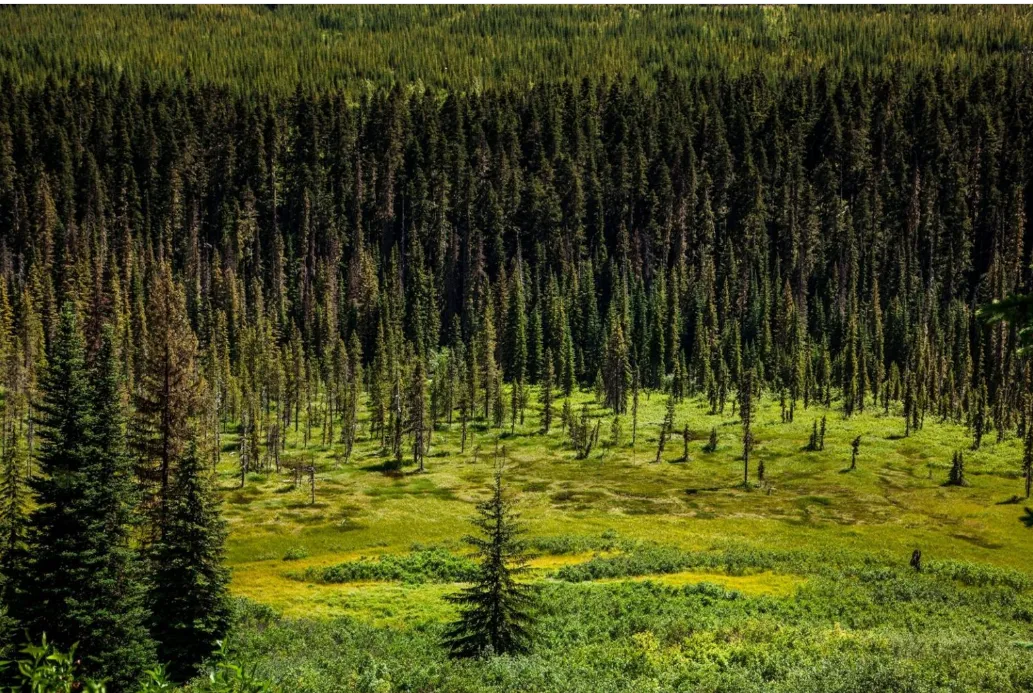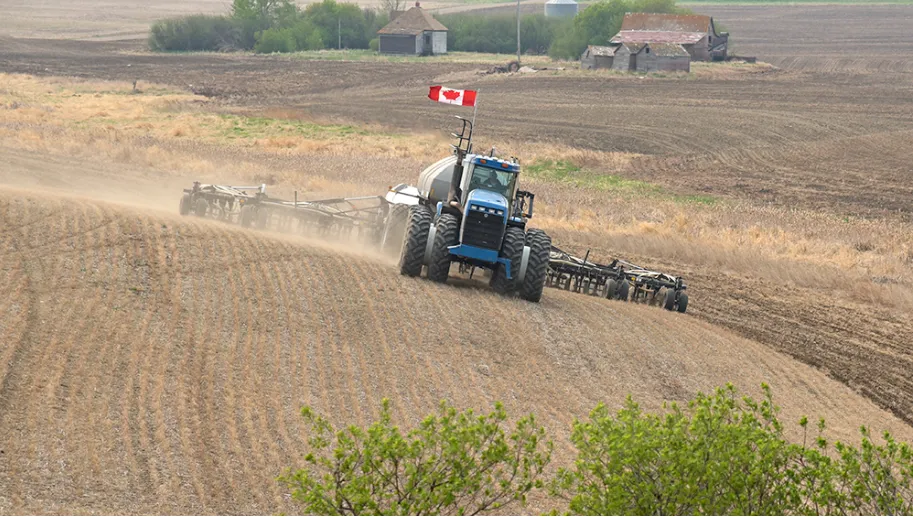Inflation sucks and Food prices are only going up.
I was recently reading a couple of posts. One about how farming is a business and should be treated as such. Another from a farmer (@monica-ene) who was shocked at the price of tomatoes and her thoughts on how to feed her community.
@monica-ene and I had a brief discussion about growing crops. She typically grows annual crops like groundnut (peanut), rice, cassava, corn and much more. I look at those crops and think it is something I would never do. It is simply too much work for too little reward.
However, the more I thought about it the more I got to wondering about our different viewpoints. She's a farmer. I'm not. She's Nigerian and I'm Canadian. I don't think you could come across two world views that are more different if you tried.
But after some reflection here's what I've come up with.
The value of a farmer.
Only a total food disrespects a farmer. There is a sign that is popular in my town which reads:
No Farmer
No Food
No Future.
...and at the heart of it that is absolutely true. Without farmers everyone dies of starvation.
However with the mass migration of people to cities many people do not see farmers just the grocery store where everything is nicely prepackaged for them to eat.
People look down at small time farmers as being low class and poor and in some cases they are. Much of the food in the grocery store comes from very large farms like the ones we have on the Saskatchewan prairies. The average farm size there is in the range of 1700 acres (700hectares) and may farms are well over 10,000 acres! They are operated with few people and very expensive machinery. The planting drill can cost well over 1 Million dollars (560M Naira) and then there are the harvesting machines and many other machines needed to run the farm.
A single machine can easily harvest over 100,000kg of wheat in a single day.
But there is a problem...
... Intensive farming of large areas of land makes them less productive over time as it is hard on the soil. Large amounts of pesticides are needed. Large amounts of fertilizer is needed. Large amounts of fuel are needed. Loans are typically needed to buy the machinery as well.
So... Fuel prices go up. Food prices go up.
Fertilizer prices go up. Food prices go up.
Interest rates go up. Food prices go up.
Production decreases due to poor soil. Food prices go up.
Bad growing conditions and only one crop. Food prices go up.
Also, these major producers are in developed nations. If your country has a weak currency your forced to compete on an international market with strong currencies. Result: Food prices go up.
I don't know about you but I like eating every day. I don't like that thought that my food comes from a source far away and that it will continually get more and more expensive year after year after year.
Let's look at those small size farmers again.
How a small farmer can compete with the big guys
Now the big farmers do very well with annual crops. Soy Beans, Wheat, Canola, Corn and so on. They do it with big machines on a huge scale with excellent growing conditions and a very efficient distribution network.
I mean why do you think that Canadian wheat is sold in Nigeria?
It is certainly not because the country is close.
If a small farmer grows those crops they are doing backbreaking work for a low value product.
In my eyes competing with a giant is silly. If a giant is playing in a certain game I know I can't compete. What do I do? I choose a different game!
- Small farmers can't compete in size or market.
- Small farmers can't compete with planting or harvesting speed
- Small farmers rarely have the money to compete with pesticides and fertilizer
- Small farmers usually can't compete on financing for loans and equipment.
But rather than focus on what they can't do focus on what they can!
CAN
- Small farmers CAN focus on smaller niche markets
- Small farmers CAN focus on value added products
- Small farmers CAN focus on a diversified farming strategy
- Small farmers CAN focus on local partnerships
- Small farmers CAN focus on sustainable farming practices!
- Small farmers CAN focus on community engagement.
Let's look at those strengths of local farmers.
Niche Markets
Some products are great but don't fit well into the mass marketed big farm strategy. I've always wanted to try a cashew apple but can't...they don't travel well. I love Pili nuts...but can't get them outside of the Philippines because their shell has to be manually removed. I would love to try Velvet apple but it didn't have a known market and now is an endangered species in the Philippines.
Value Added Products
If you have access to very fresh product you can make things from it! Grow soy bean? Soy beans have low value. However, turn it into Tofu and the price goes up. Grow wheat? Wheat has low value. However turn it into Bread and the value goes up. Grow groundnut? Groundnut has low value. However, peanut oil is more valuable. Biodiesel even more valuable. Defatted peanut meal make an excellent more valuable food supplement.
There are a LOT of different things that can be done on a small scale that just aren't practical for the major producers.
A con
Diversified farming strategy
The big guys have machines that focus on only ONE type of crop. 10,000 acres of wheat for example. But what happens if there is a late frost, drought, or other thing that affects the harvest. The farmer loses a large portion of the crop.
BAD NEWS
However, a small farmer has the option to plant a small amount of a wide variety of crops. A condition that is bad for one crop may not affect another. A pest or disease that kills one crop again may not affect another. In that way the smaller farmer can have a more reliable food source.
Local partnerships
Big farmers tend to be far away from their markets. They are unknown entities from a far off land (unless you have family in Saskatchewan like I do)>
Small farmers can get to know their local community. Know their local restaurants and local vendors. Developing those relationships can foster goodwill and a better sense of community. Neighbors helping neighbors.
That goes hand in hand with....
Community engagement
Almost the same thing. However, community engagement means getting out there and promoting your crops. I personally love Moringa for its nutritional benefits. If you grow it and the community respects you then you can make a market for a product that helps the overall health of the community, increases the farmers income, and give the farmer an edge in a competitive market.
Sustainable farming.
This is by far the most important part that I can think of.
I was recently reading an article about Native people in my province planting food forests hundreds of years ago.

You can read about it here
Here is the thing. These trees were planted many generations ago and they are still producing food today even though it is just the local wildlife as the people moved away long ago!
With proper care and management a small farmer can reduce the need for expensive fertilizers by planting trees or other crops which add natural nitrogen to the ground. With careful planning and support they can remove pests and diseased plants before a crop is lost or large amounts of pesticide are necessary.
Barrier to better subsistence farming
In my opinion there are great ways for a small time farmer to enjoy a better income from his property by growing higher value crops. By planting trees that are plant once and harvest forever. By planting niche or exotic crops that may not yet have a local market.
However, the main problem I see is that many if not most of these farmers rely on these farms to eat.
They plant what they know because they know they will have a crop in 3 months. They simply don't have the cash reserves to plant today and harvest a crop in 5 years (or more) with regards to many food trees.
Overcoming the barrier.
How do I want to overcome the barrier? I'm hoping one day to hire a farmer to plant a sustainable and lucrative food forest (Yes, I'm looking at you there @george-dee...if I ever grow my HBD savings high enough). For the first few years I know there will be either a very small or no crop and during those years I'll be paying the farmer with no return on my investment.
Now I'm also thinking about how much work a farmer can do. If continually planting and harvesting there is an awful lot of effort put into planting and weeding. A single person can only do a small area. However, if it is a perennial crop (like Palm Tree, Mango, Coconut, Guava, Moringa, or others) it is plant once and harvest forever. I believe the same person can work a much larger area with the same amount of effort.
Larger area, same effort, hopefully equals more income for the farmer and more food for the community.
Hopefully leading for a larger return for me in the future.
Strong farmers for a strong community.
In the end I believe that farmers are good for the community. Farmers that bring in even more money are even better for the community. People everywhere need food and its only getting more expensive. If your small community can provide for itself and have extra for those city folk..that means more money coming from the cities to the smaller towns. Good for the smaller towns!
Now just for fun I can the numbers on Palm Trees. I know nothing about farming palm trees but I ran this through ChatGPT just for fun.
According to ChatGPT a single farmer without machinery could feasibly watch over and maintain 20 acres worth of trees. Now he wouldn't be able to harvest that many trees but could watch over and maintain that many.
Now palm trees can produce 4-5 tonnes of palm oil per year per hectare.
Reference here
If a person truly can watch over 20 acres of palm trees that would mean 8 hectares of up to 40 tonnes of palm oil per year.
40 tonnes of oil is : 40,000 liters of palm oil!
Now if palm oil sells for about $2/liter that is $80,000 / year or about 45 Million Naira yearly! Even with food inflation you can buy an awful lot of wheat or rice from foreign big farm companies for that amount of money!
Final recommendation.
I don't recommend that small farmers put everything into Palm trees. You'll be spending every year on fertilizer and constantly look for diseases.
I don't recommend trying to outwork and outsell the major big farms for annual crops. It's just hard to fight a giant.
I would much rather recommend being a steward of the land planting a wide variety of crops in a small amount each... Preferably high value and perennial plants. If it isn't common in the area learn how to make tasty food from it and introduce to the local population. At best you have a great market for something that others don't produce. At worst you have a lot of a nutritious food for your own table.
Once you bring in a healthy income stream you can always buy cheap crops in bulk from foreign companies.
Just my thought
thanks for reading.
